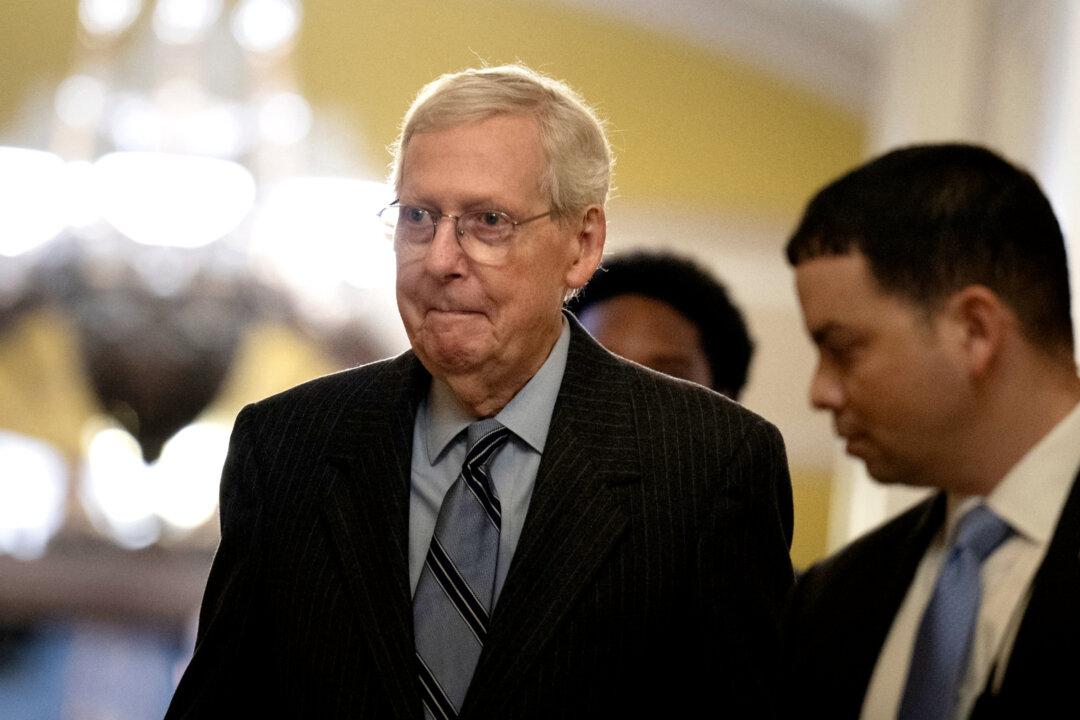Outgoing Senate Minority Leader Mitch McConnell (R-Ky.) says that after he leaves his current role as the Senate Republican leader, he'll continue to work to combat “isolationism” in his party.
Mr. McConnell’s comments come after the Senate, following months of delays and backroom dealing, voted to pass $95 billion in foreign aid bills that included funding for Israel, Ukraine, and Taiwan.





